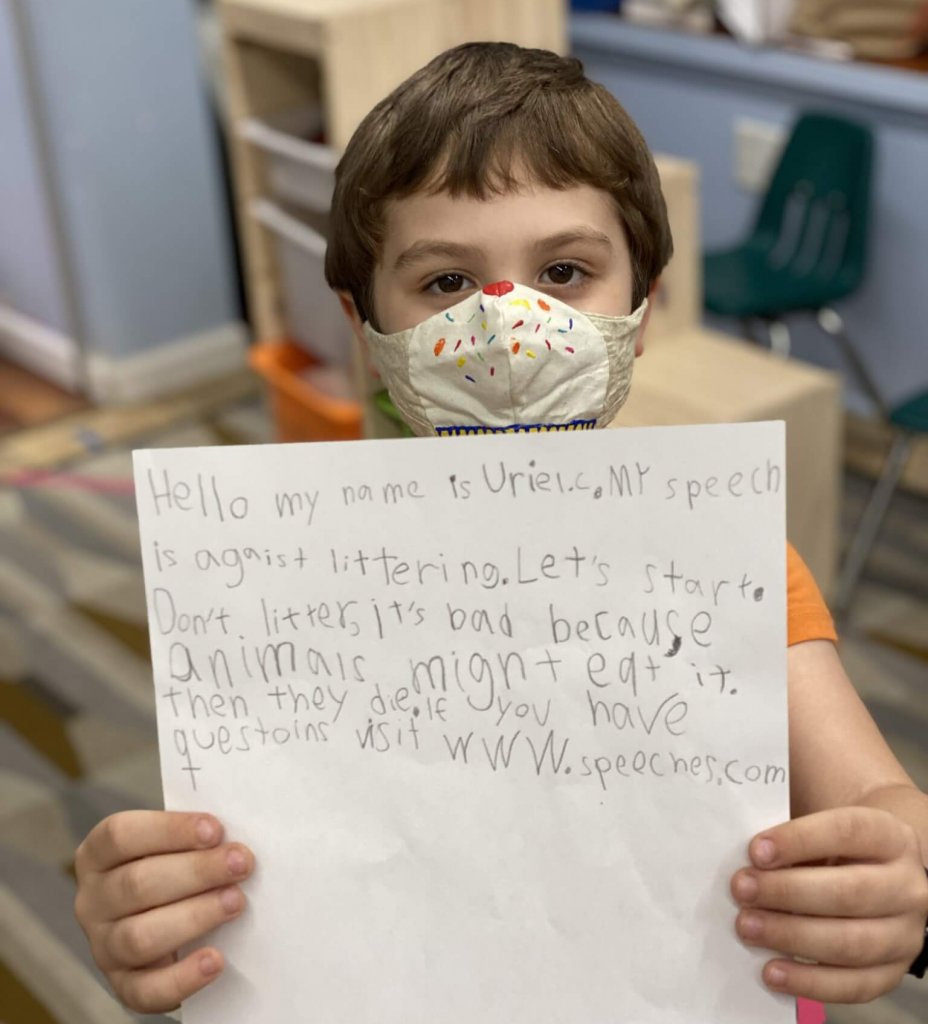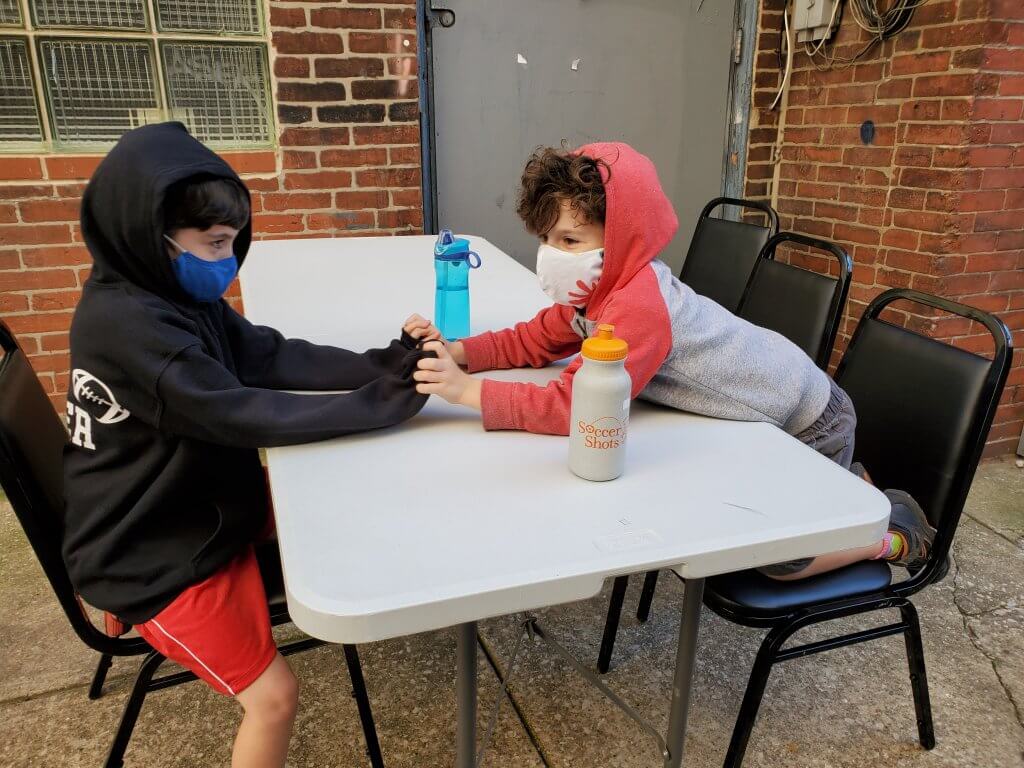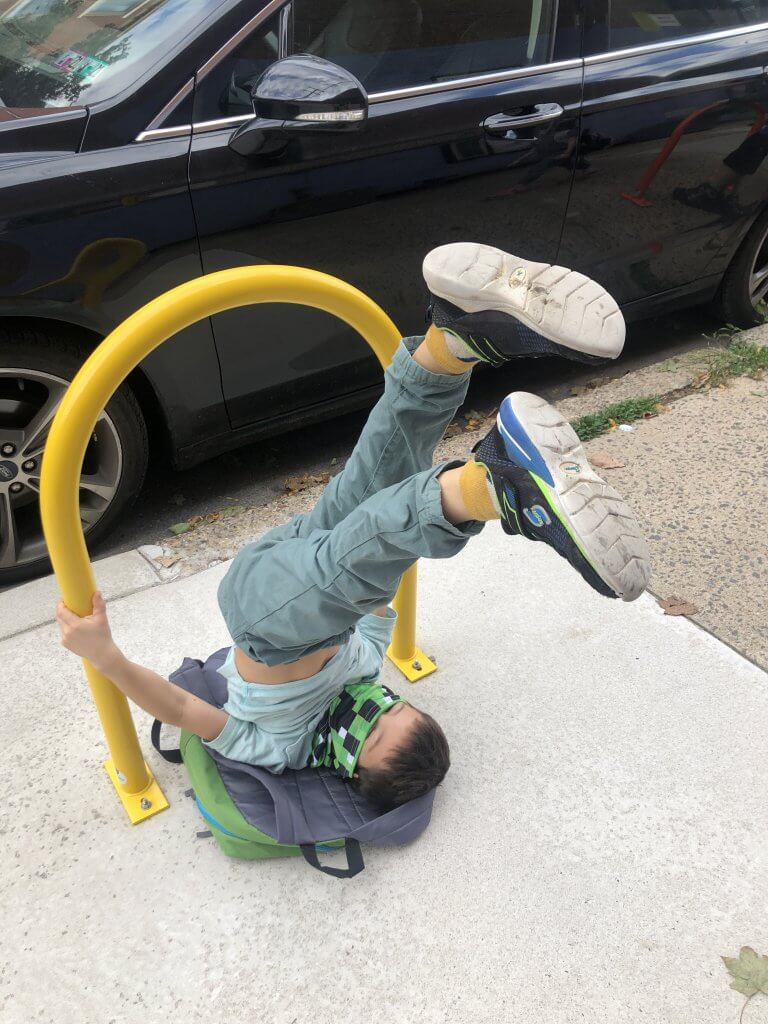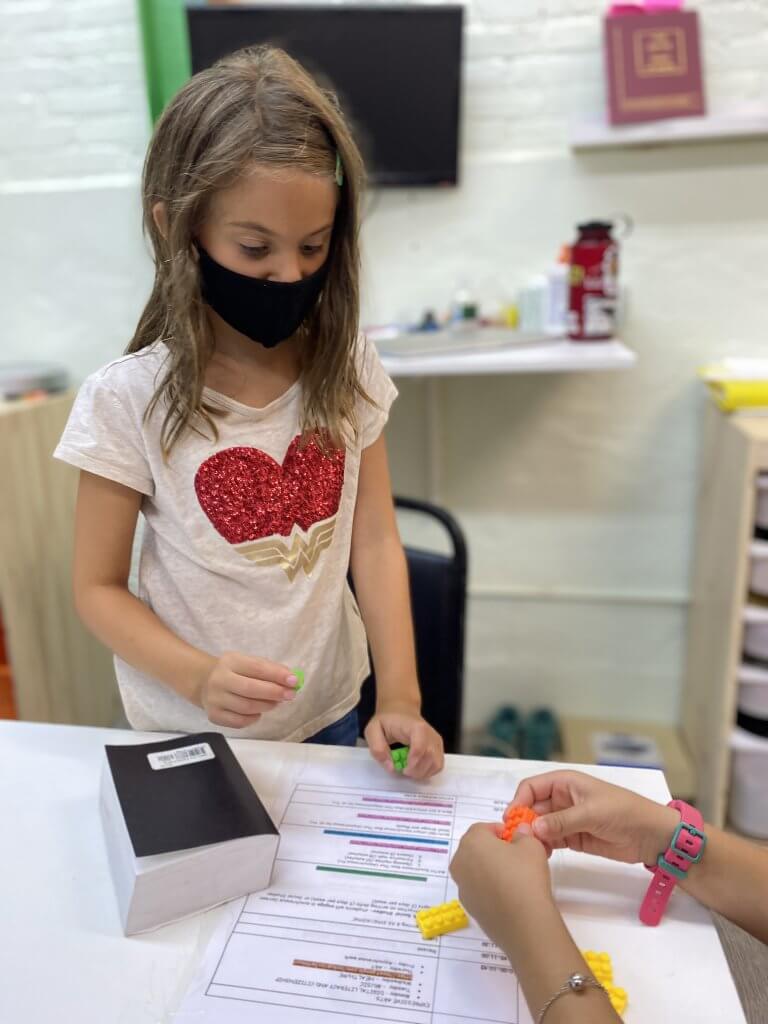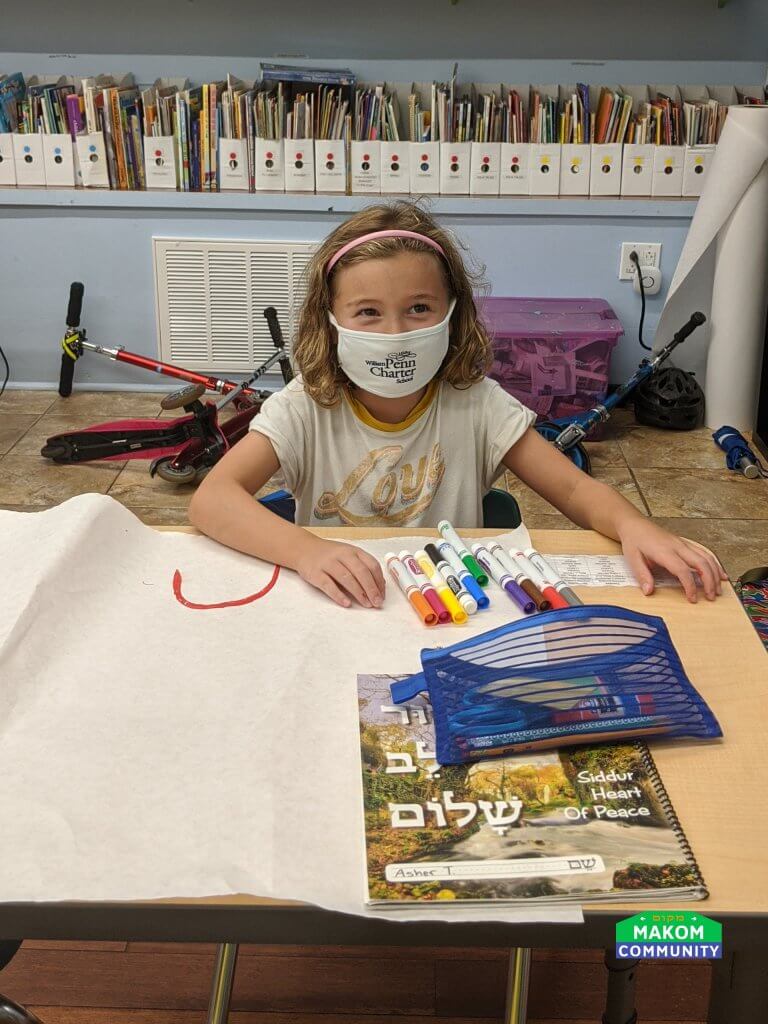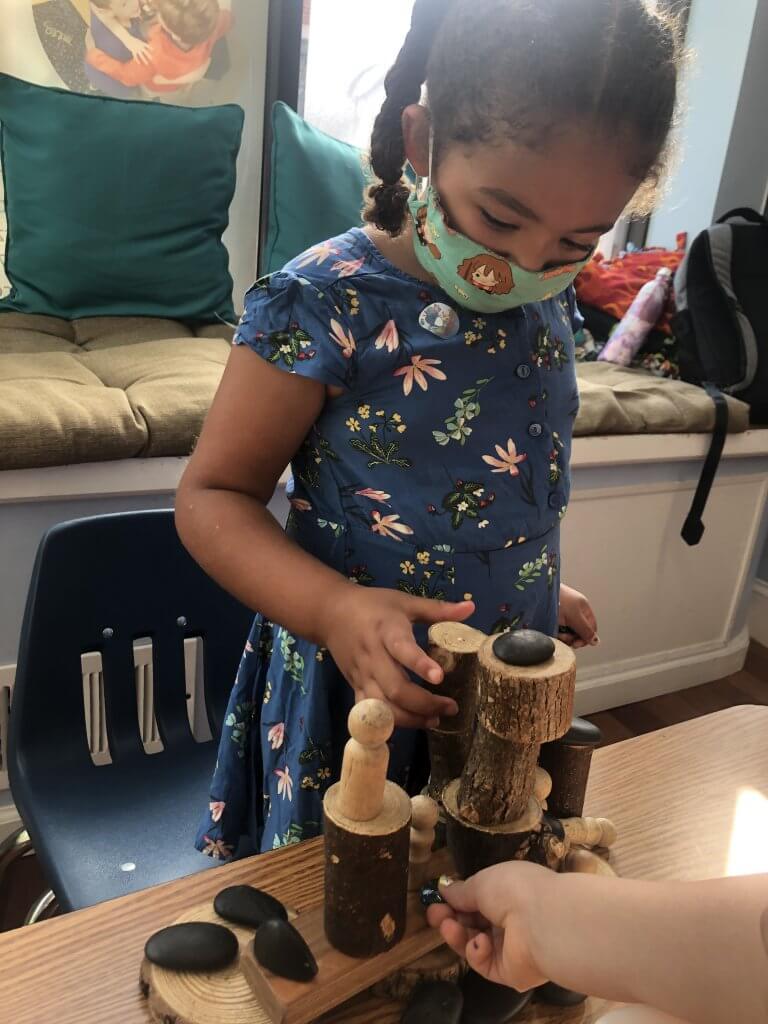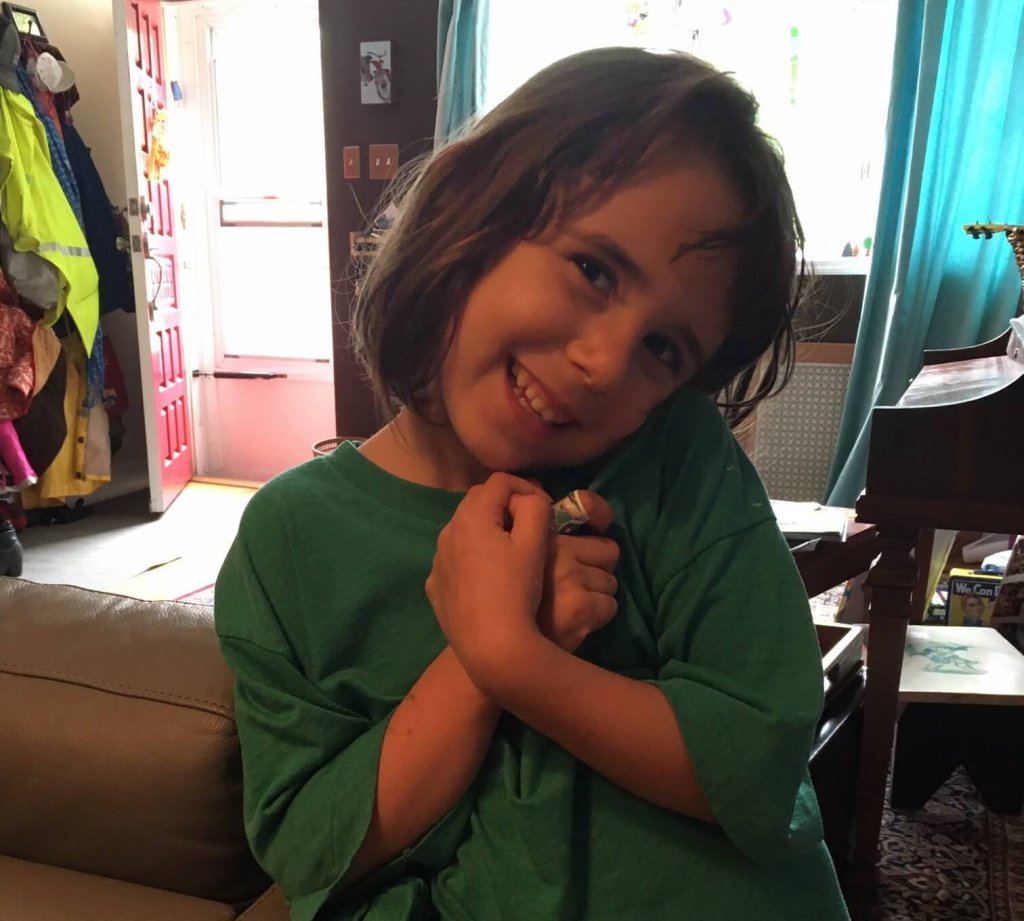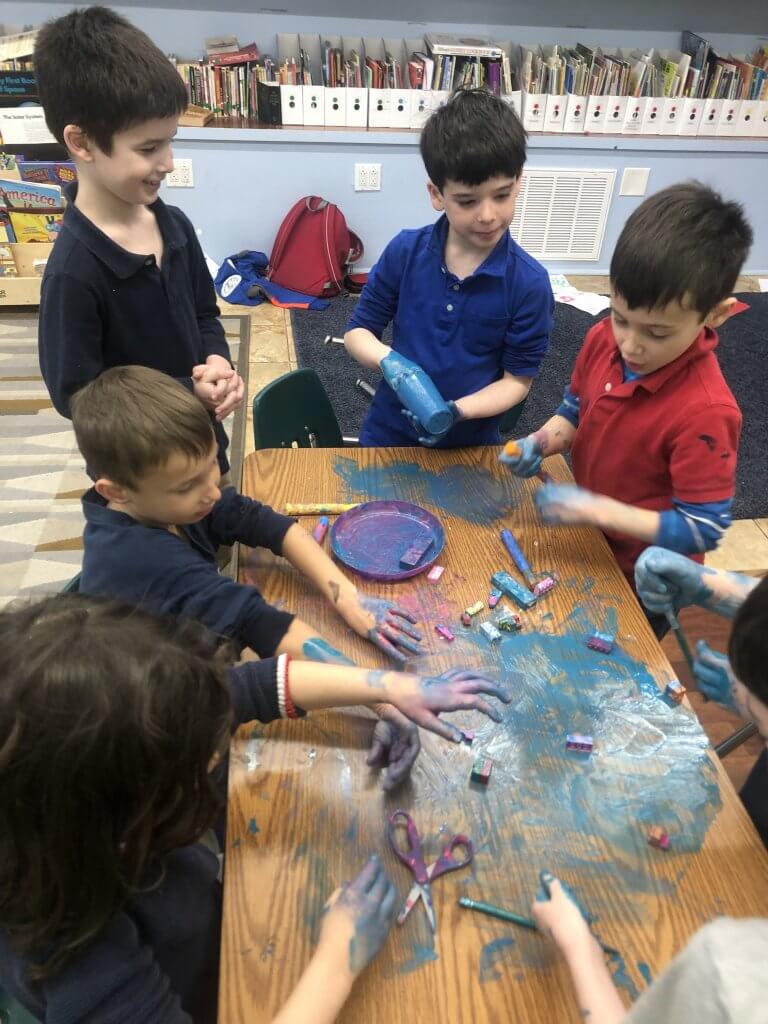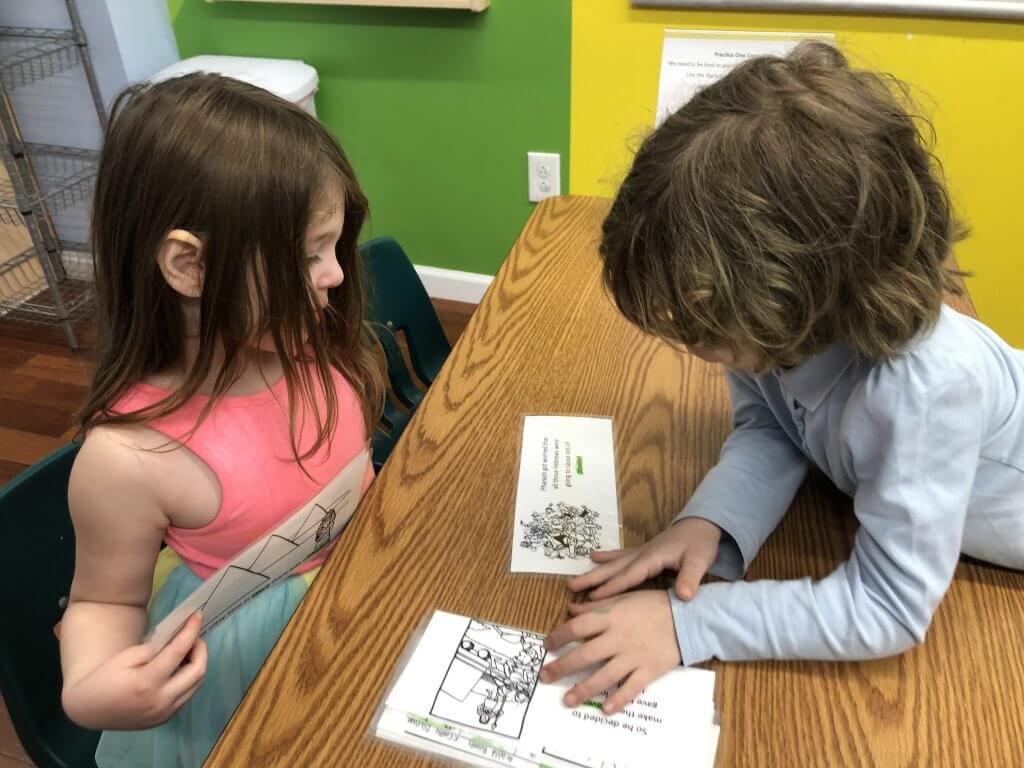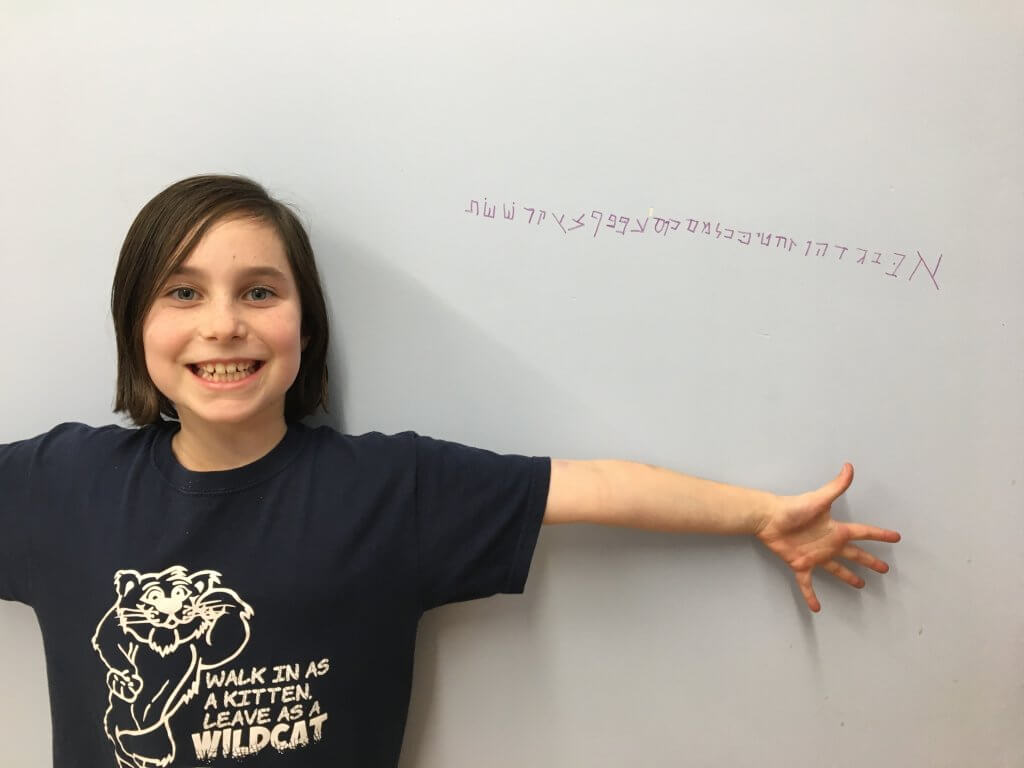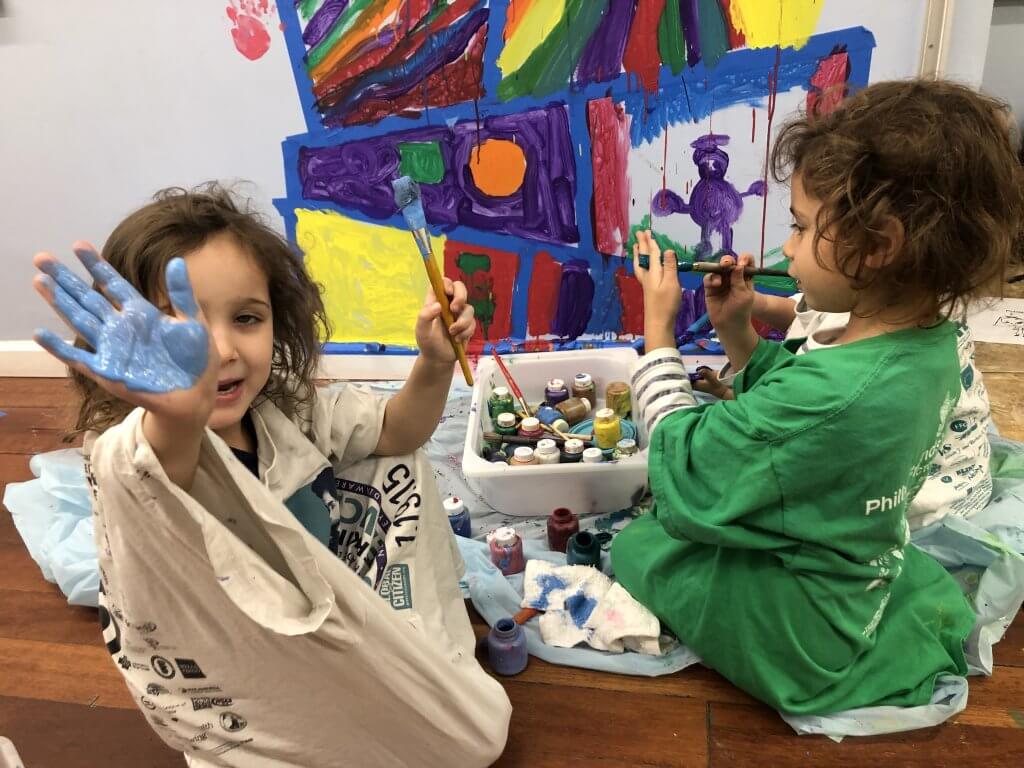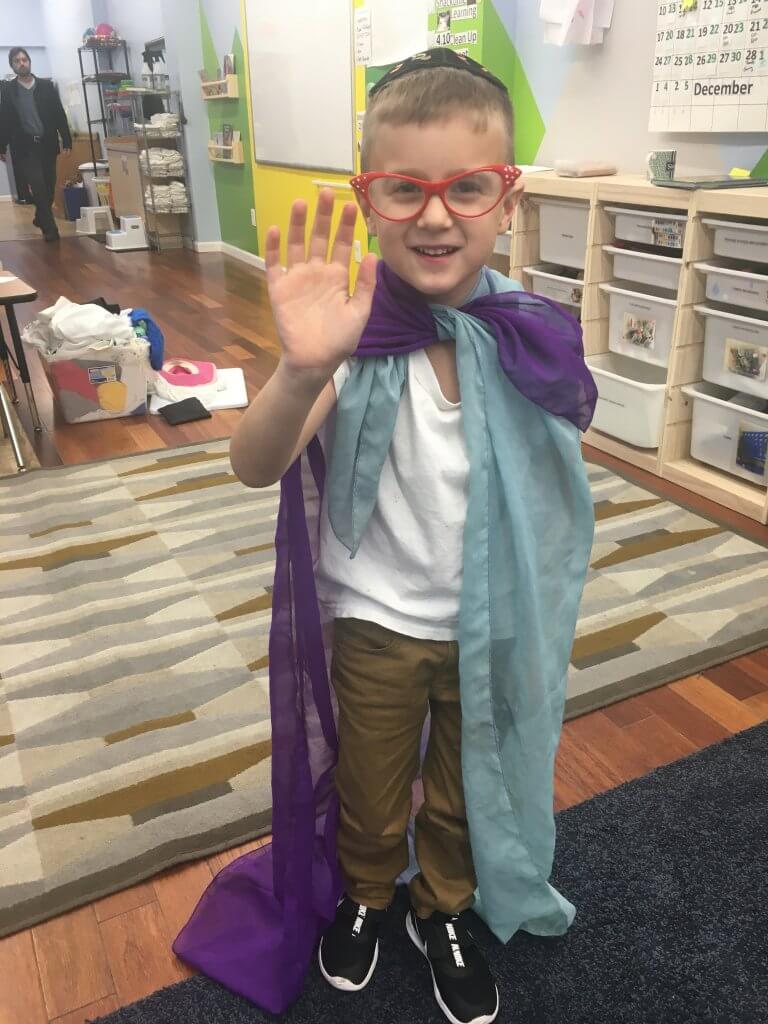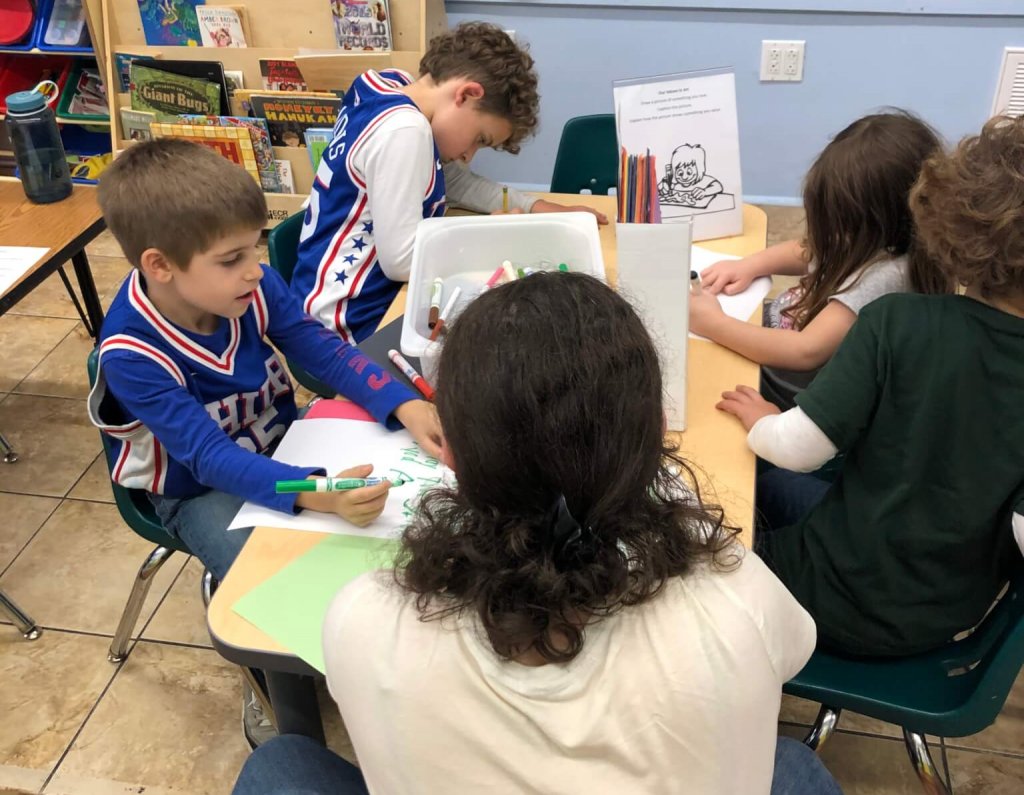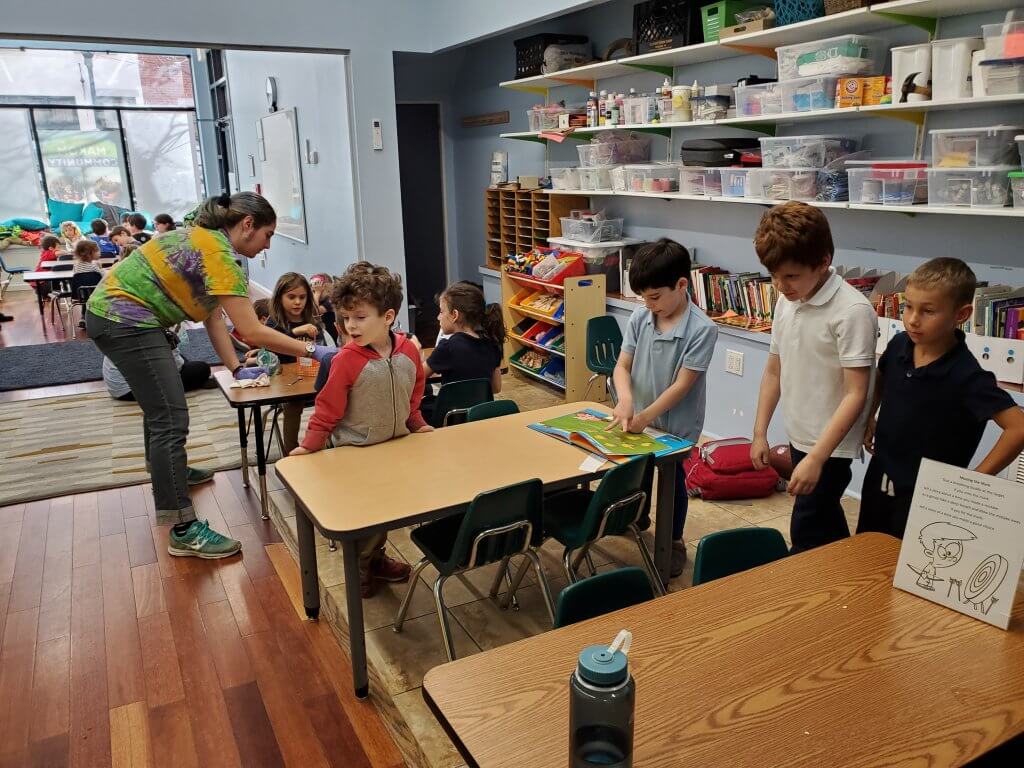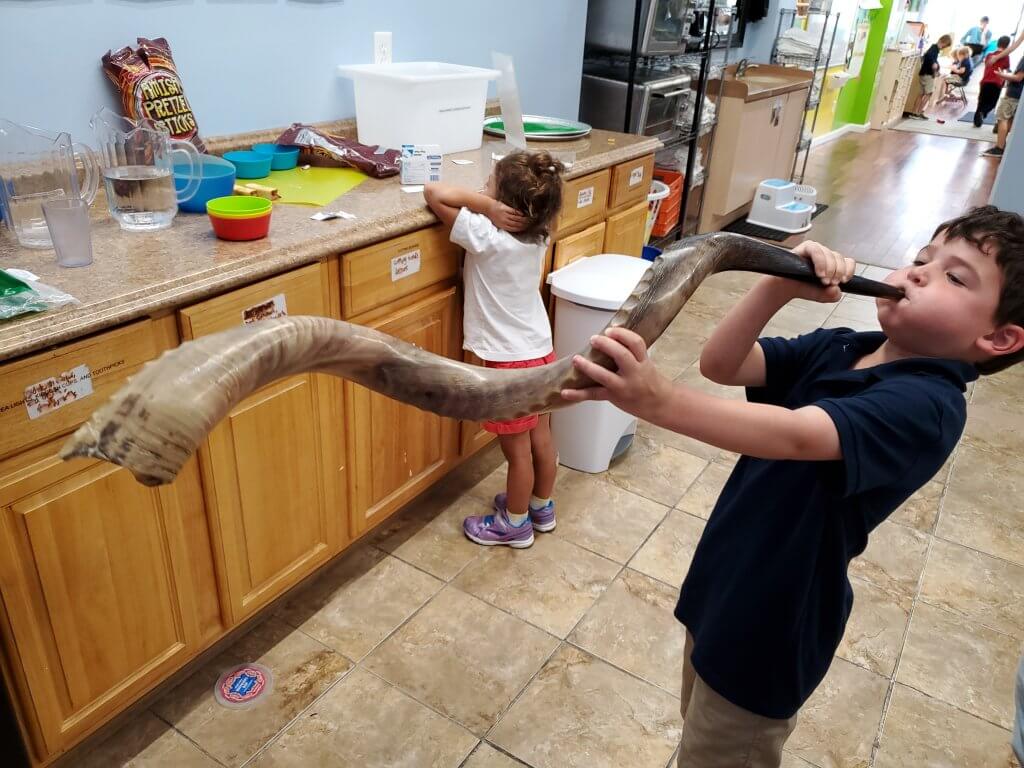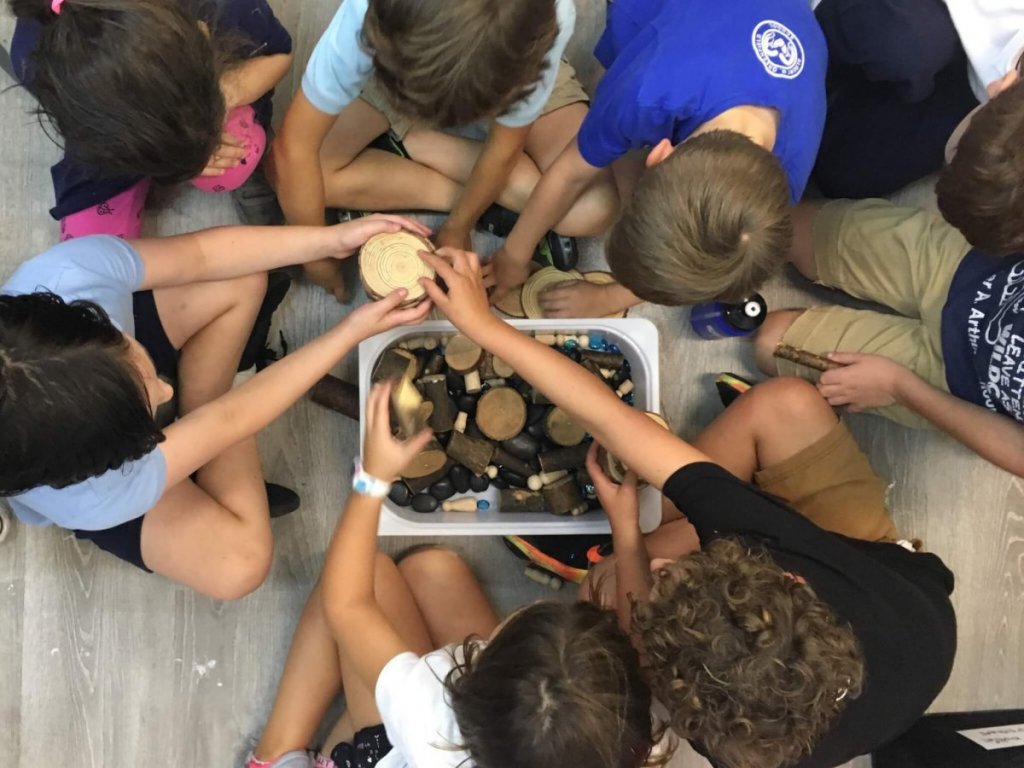Jewish tradition has lots to say about tzedek (justice). How do Jewish texts guide us towards fairness, being good leaders, and working together to make a more just world? Last week, we grappled with some big and difficult ideas surrounding justice and leadership. We started out unpacking “Tzedek tzedek tirdof – Justice, justice you will chase after it, so that…
Tag: enrichment
 Making Change in Our Communities
Making Change in Our Communities
Finally we got to hear God’s response to Bnot Zelophechad’s (Zelophechad’s daughters) request to be able to inherit their father’s land! Spoiler: God agrees with them and thinks their request is completely just. We dove deeper into the situation of women in the Torah and discovered that men had autonomy in the Torah but that women, children, and slaves did…
 Physical Reminders and Making Good Choices
Physical Reminders and Making Good Choices
How do we remember things? What kinds of reminders do we use to help us? Last week we unpacked the text of the third paragraph of the Shema prayer that we say every day during tefilah. “That shall be your tzitzit (fringe); look at it and recall all the mitzvot (commandments) of God and observe them, so that you do…
 Criticize Torah, but Make it Justice
Criticize Torah, but Make it Justice
Last week we explored a story in Torah which dealt with some pretty challenging themes of punishment and justice. Some people in Bnei Yisrael had relationships with people in another community that weren’t healthy and that God didn’t like. Those relationships led people in Bnei Yisrael to pray to idols instead of God. God, in a fury, sent a plague…
 Consequences and Punishments and Justice – Oh My!
Consequences and Punishments and Justice – Oh My!
An eye for an eye and a tooth for a tooth. Is this justice in general? Is it how we do justice at Makom Community? What kind of justice system do we want reflected in our brit (two-way promise) for this year? Keep reading to find out! Garinim What’s a punishment? How is it different from a consequence? Which should…
 On Mistakes, Punishment, and Forgiveness
On Mistakes, Punishment, and Forgiveness
‘Tis the season for reflection and reparation. Last week at Makom Community we approached our learning from deep within the Aseret Yemei Teshuvah (ten days of repentance/returning) which occur between Rosh Hashanah and Yom Kippur. These ten days are prime time on the Jewish calendar for us to think about our mistakes from this past year and how we can…
 Interpreting Our Text, Our Choices, and Ourselves
Interpreting Our Text, Our Choices, and Ourselves
What an exciting week we’ve had at Makom Community! Our oldest learners practiced flexing their muscles as translators and interpreters of text. Our younger learners dug deep into self-image, leadership, and justifiable lying. Let’s see what meaningful insights we discovered along the way! Nitzanim – Interpreting Text for Ourselves Often when we present text to our kiddos, we do a…
 Leading into the Unknown
Leading into the Unknown
Last week it was time for a journey into the proverbial unknown (cue music). Well, not us so much, but Bnei Yisrael (the Jewish people). They’ve journeyed from slavery in Egypt to the boarder of the land of Canaan. God wants them to have at it and go into their new home, but they’re not quite ready for that. Instead…
 The Brachah (Blessing) of Uncertainty
The Brachah (Blessing) of Uncertainty
We made it to Egypt! Last week the Garinim (preK and K kiddos) journeyed with Yaakov’s family from their famine-ridden home in Canaan to Egypt where Yosef had saved up enough food to last the region for years. Yaakov enjoys another 17 years of an already long life, surrounded by his reunited family, including his long-lost favorite son. Shortly before…
 New Structures, Same Fabulous Learners
New Structures, Same Fabulous Learners
We know that last week was full of new difficulties and stresses as you all started navigating new online learning formats for school. You did it! You made it through that first (maybe hardest) week! Thanks for sticking with us as you managed all that, especially our Garinim (PreK and K kiddos) families because we started a new schedule with…
 Adventures in Zoom Teaching: The Kids are Alright
Adventures in Zoom Teaching: The Kids are Alright
Zoom learning continues to be an adventure! Our methods are ever evolving, and it’s a little funky to hear and see each other sometimes. But per usual our empathetic and insightful learners have empathetic and insightful things to say! Here are some of the moments when they impressed us this week. On Wednesday we unpacked the importance of family names…
 How We Take Care of The Ger (Other)
How We Take Care of The Ger (Other)
Why would the Torah repeat the same mitzvah (commandment) 36 times? That’s so many times! Maybe because it’s really important. Maybe because people are really bad at following it. Or both. Both is good. The Torah reminds us over and over again to treat gerim (strangers/others) well. Let’s find out what that has to do with the story from the…
 Our Case for Hebrew Literacy
Our Case for Hebrew Literacy
Why do we bother learning Hebrew here at Makom Community? Why is it important? How does Hebrew help us access the Jewish text and tradition that forms the foundation of our learning? One answer, provided to me by one of the Garinim (preK and K kiddos), is that it’s about Tefilah: Prayer, Music, and Movement. We sing a lot of…
 Putting People First: The Makom Community Brit
Putting People First: The Makom Community Brit
Way back in September, our learners started exploring the text of Migdal Bavel (the Tower of Babel). Over the course of the last three months we really dug into that text and pulled it apart. We looked to the people in the story for examples of some great ways to treat each other and some not-so-great ways to treat each…
 Bein Adam LeChavero: Loving the Godliness in Everyone
Bein Adam LeChavero: Loving the Godliness in Everyone
Some actions affect our relationship with God. In Hebrew we call those bein adam lamakom (“between a person and God”*). Some actions affect our relationships with other people. Those are called bein adam lechavero (“between a person and their friend”). We looked at some of the actions we do at Makom Community and thought about whether they affect our relationships…
 People First: What do we value?
People First: What do we value?
What’s more valuable: a person or a brick? The answer, according to this week’s text, might surprise you. Do we value people? What actions and choices can we make to show it? This week we explored a midrash (rabbinic exploration of a textual question) that tried to answer the question: what was so bad about the people building the Tower…
 Treating Mistakes with Love
Treating Mistakes with Love
According to a midrash (story that elaborates), the incident of the Tower of Babel led angels to argue with God about the worthwhileness of people. Because of the “ruinous” actions of the people in the story, the angels said to God, “Didn’t the first set of angels speak appropriately before you, that human beings are not worthy of having been…
 Jumping to Conclusions and Choosing Compassion
Jumping to Conclusions and Choosing Compassion
What happens when we jump to conclusions and judge a situation before we get all the details? The text of Migdal Bavel (the Tower of Babel) says that God came down to see the tower that the people were building (Genesis 11:5). Rashi wonders why. Didn’t God already know what was going on without coming down to look? Rashi suggests…
 On God and Misunderstandings
On God and Misunderstandings
What do we know about God? How does the description of God in the story of Migdal Bavel (the Tower of Babel) add to or challenge our pre-existing understanding? Why does God make people unable to understand each other in this story? How did they respond to their misunderstandings? How do we respond to ours? Read on to find out…
 The Ups and Downs of Working Together
The Ups and Downs of Working Together
Team work! It’s a great thing, right? Sometimes. Sometimes it’s hard. Sometimes it goes wrong. The people in the story of Migdal Bavel (the Tower of Babel) get together and decide to build a city with a tower that reaches all the way up to the sky. God comes down to take a look at the tower and is not…


